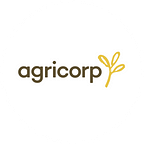Exploring Agriculture in Nigeria: A deep dive into Livestock Production.
Livestock farming is extremely important in many developing countries around the world. Its significance can be attributed to the increasing demand for livestock products and the role it plays as a source of food and employment for billions of rural and urban households. This sector is very broad and offers many opportunities for people to do business.
Livestock farming is a very profitable agribusiness in Nigeria, and one of the appealing aspects of this type of farming is the variety of options available. It’s critical to understand the differences between these different types of livestock. Given this, we will look at the key subsectors of the livestock industry.
Poultry Farming
Poultry farming is one of the most popular livestock farming options in Nigeria. It is also known as the king of livestock farming in the country. In Nigeria, the most common livestock animals are poultry birds (chicken, turkey, quail, and duck), small ruminants (goats, sheep), pigs, cattle, rabbits, and horses and camels in some parts of the northern region.
Chickens are more common in Nigeria than other poultry birds. They are divided into several categories, ranging from layers to broilers. Broilers are primarily used for meat production, whereas layers are primarily used for egg production. Nigeria's most popular poultry breeds are Cobb, Arbor Acre Plus, Bovan Black, Cornish Cross, K-22 Moyer, Marshall, and Cornish Giants.
Cattle Farming
Cattle farming is the large-scale rearing and raising of cattle for various agricultural purposes. It also entails the rearing and management of two types of animals: one for food requirements such as milk and another for labour purposes such as ploughing, irrigation, and so on. Dairy animals are those that produce milk (e.g., goats, buffalo, cows, etc.) Draught animals are animals that are used for labour.
In Nigeria, cattle are important livestock, given the prominence of beef consumption in the country. As stated in Knoema, the number of cattle and buffaloes in Nigeria was 20.7 million thousand heads in 2022. Cattle and their products are the predominant and the most commonly consumed animal protein sources. Hence, cattle are highly valued livestock in Nigeria and are kept for beef, hides, or milk.
Nigeria has three cattle production systems: extensive or pastoral, semi-intensive or agro-pastoral, and intensive or commercial. A large proportion of pastoral households and cattle value chain participants in Nigeria’s sub-humid and semi-arid ecological zones rely on the cattle industry for a living. As a result, thousands of Nigerians earn a living on a daily basis by selling, transporting, processing, and marketing pastoral livestock products such as meat, milk, skins, and draught power.
Pig Farming
Pig farming involves raising and managing pigs mainly for meat (pork). This aspect of livestock farming is well-known in most parts of the world.
Nigeria is one of the leading pig-producing countries in Africa. According to Knoema, Nigeria’s pig meat production in 2020 was 302,976 thousand tonnes. Between 1971 and 2020, Nigeria’s pig meat production increased significantly, rising from 29,190 to 302,976 thousand tonnes per year at an increasing annual rate that peaked at 29.41% in 1984 and then fell to 0.84% in 2020.
Pigs are raised on five different types of farms: wean-to-finish, finishing, farrow-to-finish, and farrow-to-nursery. Pig farming has a greater potential than other livestock species to provide farmers with a faster economic return because of some inherent characteristics like early maturity, better feed conversion efficiency, high fecundity, and short generation intervals. For developing nations like Nigeria, pig farming has great potential to guarantee economic and nutritional security.
Goat Farming
Goat farming involves rearing different goat breeds for commercial purposes in a confined environment or an expanse of land. Its meat (chevon) is one of the most sought-after in the country.
According to Science Agriculture, Nigeria ranks fourth in the world in terms of goat meat production. Goats (commercial or domestic) account for a sizable portion of the Nigerian agricultural market. Goats are low-maintenance animals that are primarily used to produce dairy goods like milk, yoghurt, and cheese. Goat milk is used to make goat butter, fresh goat milk, goat milk cream, skimmed goat milk powder, full cream goat powder, and more.
Snail Farming
Snail farming, also known as Heliculture, is described as rearing or raising snails specifically for flesh, slime, eggs, or other economic uses. Snail farming is one of the most sought-after types of farming, alongside poultry and fish farming. Snail consumption and cultivation are widely popular in African countries including Algeria, Cote d’Ivoire, Nigeria, and Ghana. This is because it is not capital intensive, and doesn’t require a large piece of land, just adequate knowledge and time.
The African Land Giant Snails are Nigeria’s most preferred snail species for rearing. They are one of the largest snails in the world. The three species commonly bred are Achatina Fulica (also known as East African land snail), Archachatina Marginata (the giant West African snail) and Achatina Achatina (also known as the giant Ghana snail or Giant tiger snail). The most desired for snail farmers in Nigeria is the Achatina Achatina, which is considered the biggest snail species in the world.
Livestock production is an important component of Nigeria’s agricultural economy. Beyond the direct production of food, it also contributes to capital accumulation and other multipurpose uses like the production of skins, fertilizer, fibre, and fuel. Livestock will make a significant contribution to the development of Nigerian agriculture.
